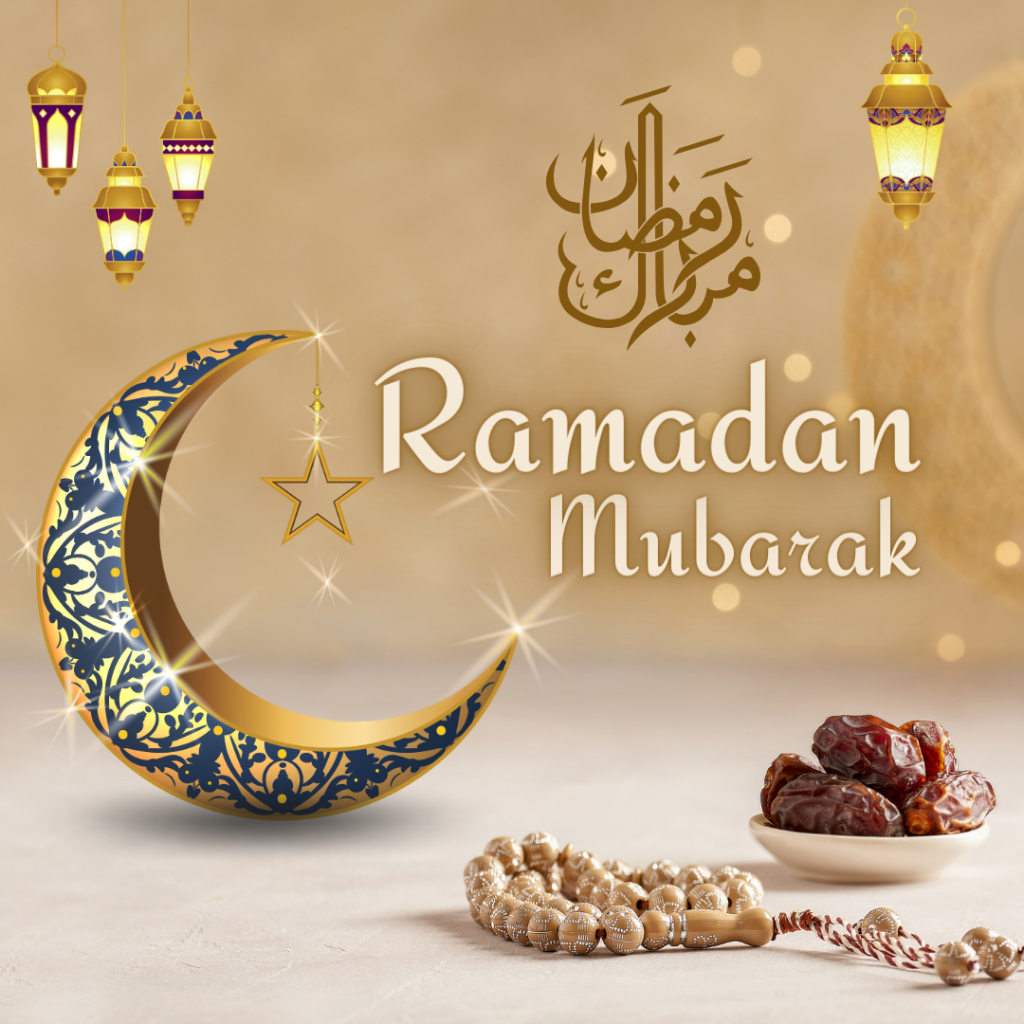Issa Kabeer
April 9, 2024
Ramadan is considered the most holy month for Muslims. Why is this month so holy? This was the month in 610 CE the Qur’an, the holy scripture Muslims read and follow, was revealed to the Prophet Muhammad pbuh (Muslims say Peace and Blessings be upon him) by the angel Gabriel. Ramadan is the 9th month of the Islamic lunar calendar. Muslims fast from before sunrise to sunset, with a morning meal called suhur and with an ending meal called iftar. This month is completed with a celebration called Eid-ul Fitr, which means the celebration of the breaking of the fast.
In the Islamic tradition called the Hadith it is said there is a special cycle of three months Rajab, Shaban, and Ramadan. This tradition states that Rajab is the planting of seeds, Shaban is irrigating or watering, and Ramadan is the harvesting. These being the seeds of personal good qualities and actions within a believer’s personal life. It allows with all the spiritual fostering of good character for a person metaphorically to plant their personal good, then to water it, and then to reap it.
It is a month that is focused on fasting, prayer, charity and reflection. There is a deep fostering of empathy, compassion, and self-discipline that helps Muslim believers focus on becoming better versions of themselves. There is also a focus on the abstention from sexual activity and focusing on having a good temperament without negative and hostile speech. Those who participate in Ramadan the take time to reflect on how to be charitable for the community. There is a focus on those greatly disadvantaged and unable to afford food. Being charitable and finding ways to help is a way to foster empathy for those who are hungry. There may be those who are not able to fast can give fidyah or kafarah, or monetary means that can feed those who are in need.
For Muslims around the world, Ramadan is a sacred period of spiritual discipline as well as reflection. It is also a time to look inward. Ramadan is also about extending kindness and compassion to others. This is done primarily by supporting the disadvantaged and extending empathy and compassion to those with less than we do. In this month there are many opportunities for Muslims to be able to foster this. First, it is marked by a fast from food and water from before sunrise to after sunset. This is a spiritual month and self-reflections that allows believers to work on adab and ahlaq, or good behavior and good character. This is done through moral self-cultivation and working with mercy and compassion for other lives who may not be as fortunate. Those who may be food insecure it is a time to allow believers to have empathy to those who may struggle to have their next meal. It is a time where believers can do additional prayers like the Tarweh or night prayer after fasting, where for some the whole Qur’an is read in these prayers during this month. There is another prayer that some practitioners focus on in this month called Tahajud. It is a night prayer between the last of the five prayers, the night prayer called Isha and the first prayer before sunrise called Fajr. There is another special prayer opportunity that occurs on a night called Laylatul Qadr, or the night of power. This specific night was said when the first verses of the Qur’an were revealed. In the Qur’an surah or chapter 97 known as Qadr or Power or Decree, states in the third ayah or verse that this night is better than a thousand months or 83 years, which is approximately a human life time. So, if a believer prays this night and focuses on moral purification it is the value of a human lifetime. It is a space for practitioners to be able to really focus on being the best person they can be with all the opportunities mentioned.
It is important because within Islam there are Arkanal Islam or the 5 pillars. The first pillar is Bearing Witness or Shahadah, which is an affirmation that there is no deity but Allah swt (Muslims use this to say glorified and exalted is He) and that the Prophet Muhammad pbuh is the Messenger of Allah swt. The next is performing 5 times prayers or Salat. These prayers have cycles that are called rakats. They consist of standing, bowing, prostration, and sitting. To perform this pillar a Muslim needs to do a purification ritual with water called wudu or ablution. This ritual is washing and wiping with water of different body parts to purify. There is Zakat or purifying of one’s wealth (giving alms or tithing). Next there and what is the focus of this engagement, which is fasting the month of Ramadan or Sawm.This is a month and as stated, begins with a fasting of food, water and other engagements before sunrise and completes with an iftar or a breaking of fast at night.. Finally, there is the Making the Pilgrimage to Mecca or Hajj. This is done if one’s resources are fulfilled. It is pilgrimage to Mecca and Medina, where believers perform rituals of the Prophet Abraham/Ibrahim pbuh (Muslims will say peace be upon him) like doing tawaf or circling the Kaabah a cube shaped structure that is considered sacred in the center of the grand mosque in Mecca. There is the walking between the hills of Safa and Marwah and as well as throwing stones at a pillar that represents Satan. This shows that this is such a deep and important space as a fard or mandatory and crucial aspect of a Muslim practitioner’s life.

On CCP campus, let us be aware of our fellow Muslim students during this very special and sacred month. We should ask ourselves: “How can we be supportive of our Muslim Students on campus?” We have opportunities to get to know them and what they believe. While they are fasting, let’s be considerate to not eat in front of them, be patient, and help emotionally support them during this time. It is important that they may be focused on prayer and focused on their practice. Make sure to wish them Ramadan Mubarak or Blessed Ramadan.
